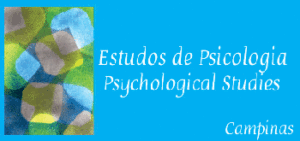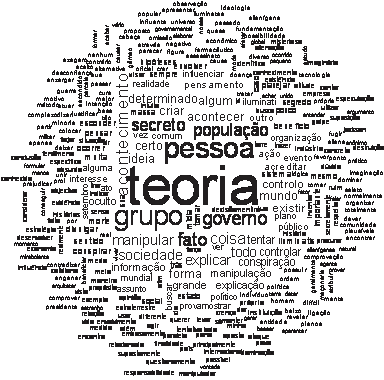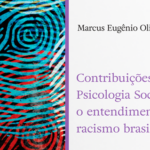Alessandro Teixeira Rezende, Mestrando, Federal University of Paraíba, João Pessoa, PB, Brasil
 Researchers at the Federal University of Paraíba have published an unpublished study evaluating the meanings attributed by university students to conspiracy theories. The research entitled “Theories of conspiracy: meanings of Brazilian context” was published in the journal Psychological Studies (Vol. 36), through a qualitative interview, it was possible to present a differentiated work approach, having as theoretical reference the psychology.
Researchers at the Federal University of Paraíba have published an unpublished study evaluating the meanings attributed by university students to conspiracy theories. The research entitled “Theories of conspiracy: meanings of Brazilian context” was published in the journal Psychological Studies (Vol. 36), through a qualitative interview, it was possible to present a differentiated work approach, having as theoretical reference the psychology.
A total of 383 university students from a public institution in the city of Joao Pessoa participated in the study, the majority being female (54.6%) and with a mean age of 21 years. These individuals have answered two open questions (what do you mean by conspiracy theories? What comes to mind when you think of conspiracy theories?).
From the qualitative analysis of the answers, one of the highlights results by the researchers was the understanding of conspiracy theories as a way of explaining social reality. In this study, the interviewees’ analysis brought together words like “happen”, “think”, “conspire” and “influence”, raising the idea that conspiracy theories constitute cognitive resources that attend to the need to explain complex and disturbing events, such as the spread of contagious diseases and the sudden death of celebrities. In addition, Van Prooijen, Krouwel and Pollet (2015) suggest that conspiracy theories are part of a belief system that allows individuals to understand phenomena occurring in social reality and indicate why significant or impacting events are often accompanied by lay explanations and speculative.
Another result found by the authors was the idea that conspiracy theories act as a form of contestation of social facts. In that sense, conspiracy theories are often endorsed and accepted when there is no definitive explanation for an event, or when the official version of an event is not considered true. In the same line of thought, it is possible to note that the approval of such theories as a form of contestation of social facts causes individuals to create arguments divergent from the version considered “politically correct”.

Word cloud Font: the authors
In general, the results observed reinforce those obtained in international research carried out in Psychology. Essentially, they suggest that conspiracy theories can be understood as having an explanatory function and being associated with mental processes that seek to view the world as orderly, comprehensible, and predictable. Therefore, such theories are conceived as a set of assumptions to explain the existence of an “enemy” and evidence the intrinsic need that individuals have to explain complex social events.
In essence, the authors conclude that the need to maintain control over the social environment may explain why conspiracy theories have been gained momentum, particularly after shocking social events that are likely to be experienced as threats of citizen control (terrorist attack, war, natural disaster). In this scenario, Sapountzis and Condor (2013) point out that psychology has as an analytical role to emphasize why people believe in certain conspiratorial ideas to explain social reality, rather than classifying conspiracy theories as probably “true” or ” false “.
References
SAPOUNTZIS, A. and CONDOR, S. Conspiracy accounts as intergroup theories: Challenging dominant understandings of social power and political legitimacy. Political Psychology, v. 34, n. 5, p. 731-752, 2013. e-ISSN: 1467-9221 [viewed 30 April 2019]. DOI: 10.1111/pops.12015. Avaliable from: https://www.jstor.org/stable/43783733?seq=1#page_scan_tab_contents
VAN PROOIJEN, J. W., KROUWEL, A. P. M. and POLLET, T. V. Political extremism predicts belief in conspiracy theories. Social Psychological and Personality Science, v. 6, n. 5, p. 570-578, 2015. e-ISSN: 1948-5514 [viewed 30 April 2019]. DOI: 10.1177/1948550614567356. Avaliable from: https://journals.sagepub.com/doi/abs/10.1177/1948550614567356
To read the article, access
REZENDE, A. T. et al. Teorias da conspiração: significados em contexto brasileiro. Estud. psicol. (Campinas), v. 36, e180010, 2019. ISSN: 0103-166X [viewed 30 April 2019]. DOI: 10.1590/1982-0275201936e180010. Avaliable from: http://ref.scielo.org/rps376
External link
Estudos de Psicologia (Campinas) – ESTPSI: www.scielo.br/estpsi
Como citar este post [ISO 690/2010]:














Recent Comments